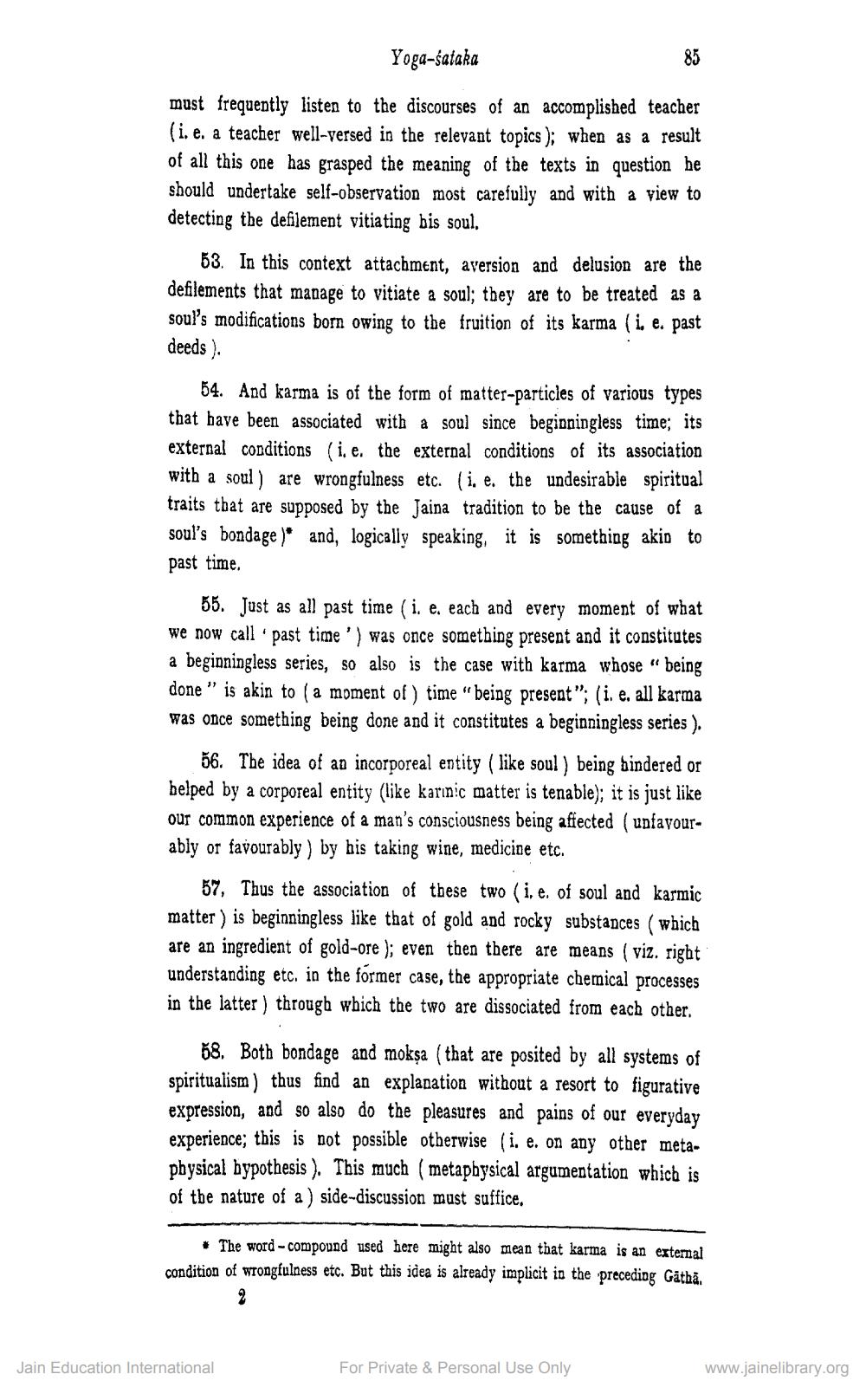________________
Yoga-śataka
must frequently listen to the discourses of an accomplished teacher (i. e. a teacher well-versed in the relevant topics ); when as a result of all this one has grasped the meaning of the texts in question be should undertake self-observation most carefully and with a view to detecting the defilement vitiating bis soul.
53. In this context attachment, aversion and delusion are the defilements that manage to vitiate a soul; they are to be treated as a soul's modifications born owing to the fruition of its karma ( i. e. past deeds ).
54. And karma is of the form of matter-particles of various types that have been associated with a soul since beginningless time; its external conditions (i. e. the external conditions of its association with a soul) are wrongfulness etc. (i. e. the undesirable spiritual traits that are supposed by the Jaina tradition to be the cause of a soul's bondage )* and, logically speaking, it is something akin to past time.
55. Just as all past time (i. e. each and every moment of what we now call 'past time') was once something present and it constitutes a beginningless series, so also is the case with karma whose “ being done" is akin to (a moment of) time " being present"; (i. e. all karma was once something being done and it constitutes a beginningless series ).
56. The idea of an incorporeal entity ( like soul ) being bindered or helped by a corporeal entity (like karinic matter is tenable); it is just like our common experience of a man's consciousness being affected ( unfavourably or favourably) by his taking wine, medicine etc.
57, Thus the association of these two (i, e. of soul and karmic matter ) is beginningless like that of gold and rocky substances (which are an ingredient of gold-ore ); even then there are means ( viz. right understanding etc. in the former case, the appropriate chemical processes in the latter through which the two are dissociated from each other.
58. Both bondage and mokṣa (that are posited by all systems of spiritualism) thus find an explanation without a resort to figurative expression, and so also do the pleasures and pains of our everyday experience; this is not possible otherwise (i. e. on any other metaphysical bypothesis ). This much ( metaphysical argumentation which is of the nature of a) side-discussion must suffice.
The word - compound used here might also mean that karma is an external condition of wrongfulness etc. But this idea is already implicit in the preceding Gathā.
Jain Education International
For Private & Personal Use Only
www.jainelibrary.org




